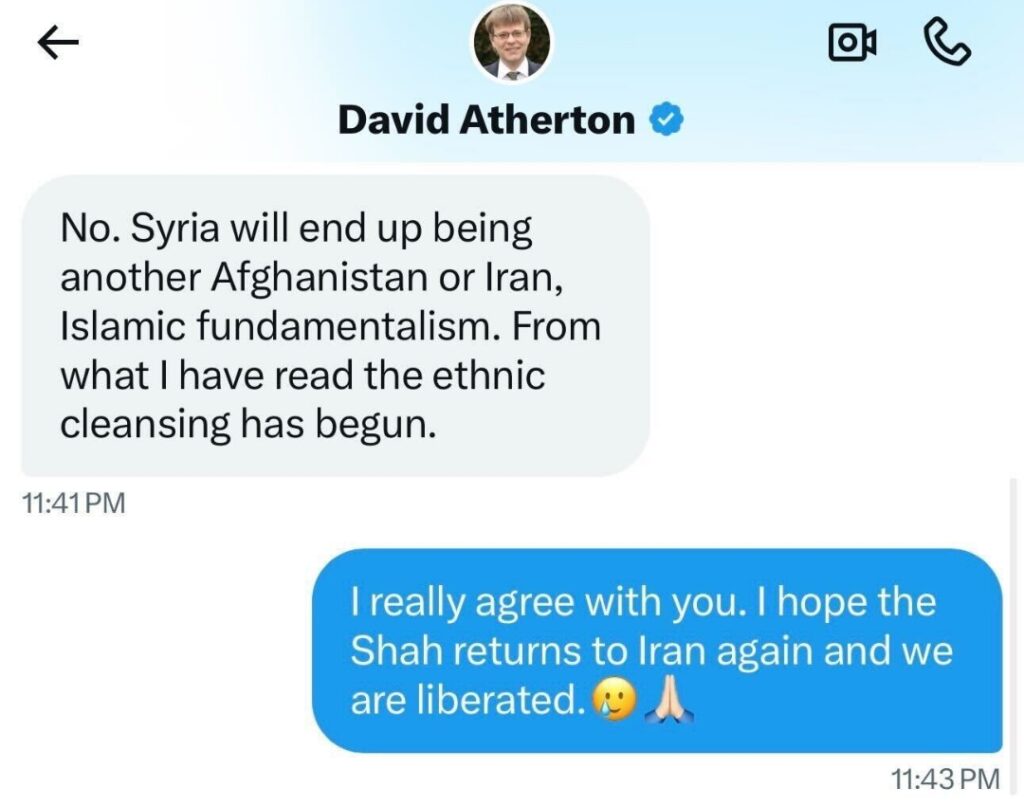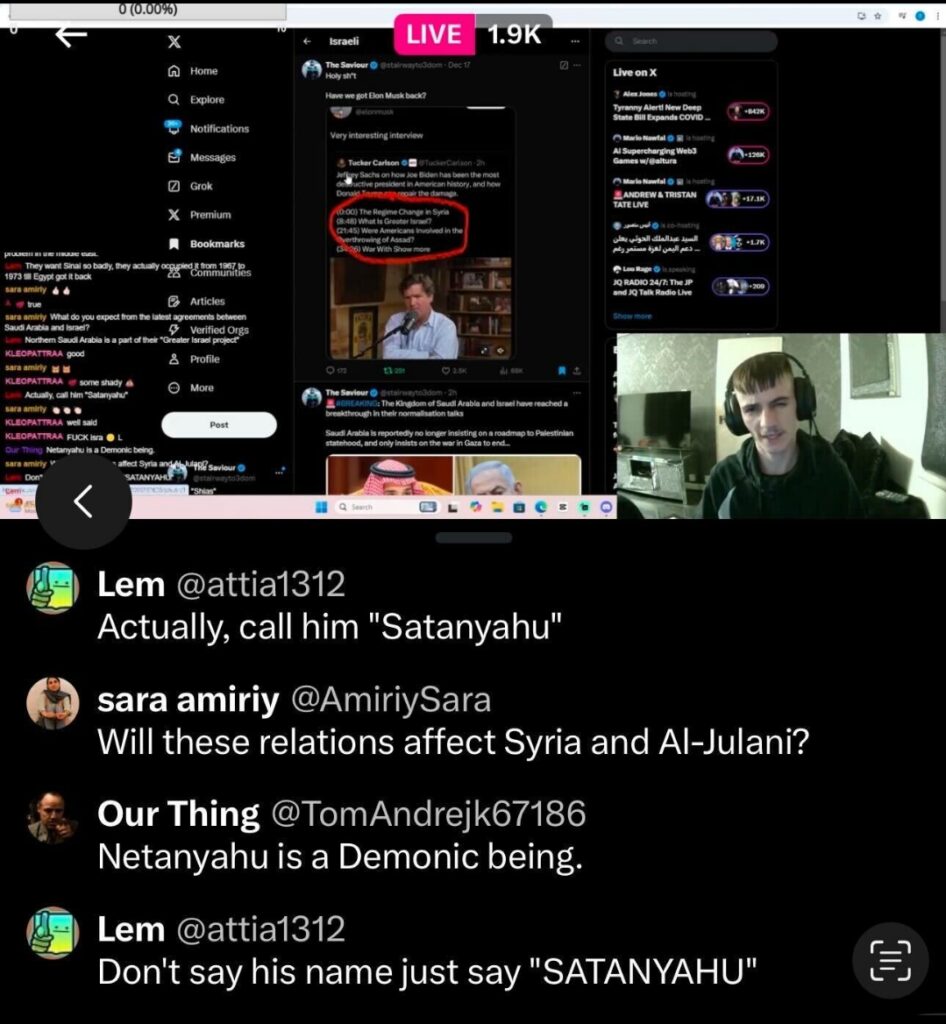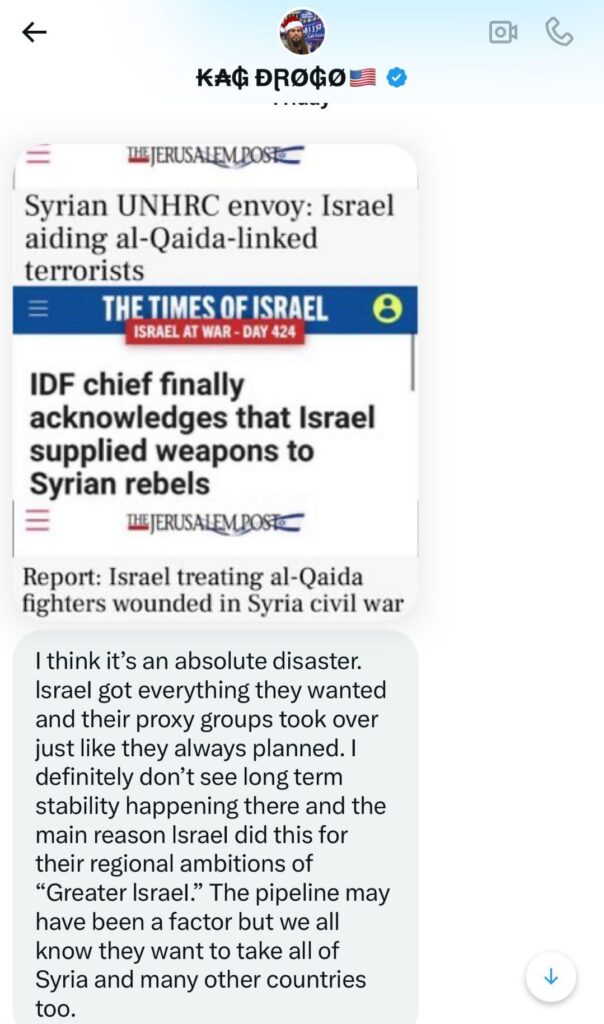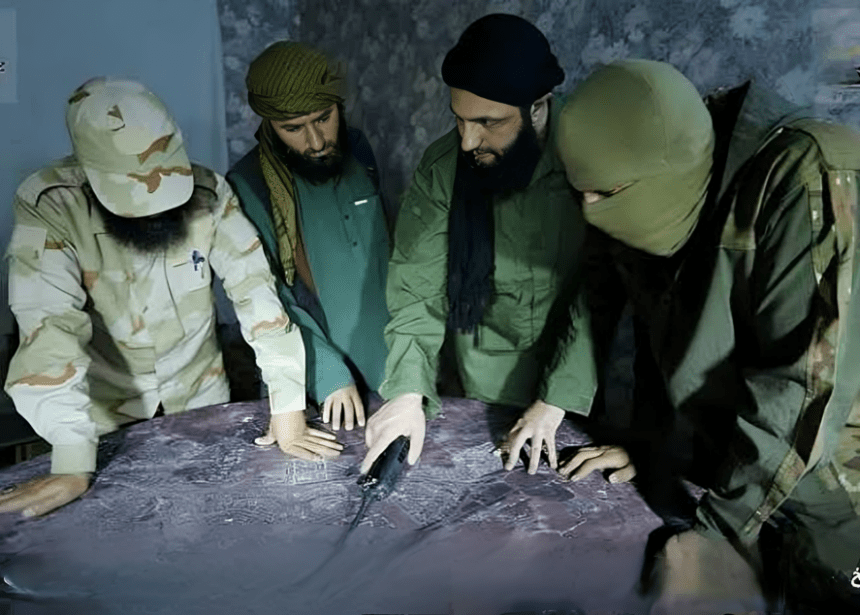As the influence of extremist groups grows in Syria, Abu Mohammad al-Jolani’s role in consolidating Islamist control over state institutions increases, threatening vital sectors such as education and healthcare, and worsening the suffering of the Syrian people. Al-Jolani also enjoys support from other terrorist organizations, while violations such as field executions and the destruction of infrastructure continue to rise. With the increasing release of terrorists, the risks intensify, raising questions about the interim government’s ability to contain this chaos. Accordingly, we have gathered the views of key influencers to analyze the current situation and determine effective solutions to address these challenges.
Journalist David Atherton: Islamist Movements in Syria and Future Threats
David Atherton believes that the success of the military actions of Islamic groups led by Abu Mohammad al-Jolani in Syria is due to their good organization, the low morale of Assad’s forces, and the fact that Assad’s allies, such as Russia, Iran, and Hezbollah, are preoccupied with other issues. Despite al-Jolani’s claims of tolerance and guarantees for women’s rights, Atherton observes a contradiction between these statements and the actions on the ground, pointing out atrocities committed against minorities such as Christians and Alawites. He expresses concern that Syria may turn into a version of Afghanistan or Iran, especially if it becomes a base for attacks on Israel. He also highlights Turkey’s support for these groups to achieve its regional interests, while Israel remains hesitant to take effective actions.

Freelancer Savior: Regional Conflicts and Their Impact on Syria
Savior views the situation in Syria as part of a regional strategy to achieve Israel’s expansionist goals, particularly through the ‘Nile to the Euphrates’ project. He argues that supporting armed groups and destabilizing Syria serves Israeli dominance, alongside shifts in regional alliances, such as recent agreements between Saudi Arabia and Israel. This rapprochement strengthens Israel’s ability to exploit the chaos in Syria and create a political vacuum that facilitates control over strategic areas. He also raises concerns about Syria becoming a base for future attacks while the Syrian people suffer from disruptions in vital sectors amidst a lack of trust in local and international leadership.

Political Activist Kage Dragon: The Syrian Conflict and the ‘Greater Israel’ Plan
Kage Dragon believes that what is happening in Syria is part of an Israeli expansionist plan to achieve the ‘Greater Israel’ project, with support from the United States, which he claims has been under Israeli influence since the assassination of President John F. Kennedy. He mentions that Israel has used armed groups as ‘proxies’ to achieve its goals in Syria and that U.S. politicians like Bush and Obama supported this agenda, even going so far as to train ‘ISIS’ fighters in Syria. Dragon also states that the Trump administration tried to halt this plan by reducing support for these groups and supporting Russia in confronting them. He insists that the ultimate goal is to expand Israel’s influence at Syria’s and neighboring countries’ expense.

https://x.com/LadoNoticias/status/1871279546215100775?t=GHvuxnb_A22Fk182N-2zoQ&s=19





